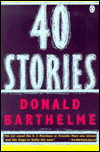Landfill by Joyce Carol Oates comes from the Ecco Anthology of Contemporary American Short Fiction, which she also edited. Being in graduate school for Higher Education and Student Affairs and reading case studies, along with using a identifying your values training exercise (about a bridge and a mistress and death and whose fault it was) that we gave our Resident Assistants during training, prepared me for when I read this story, I thought this story would work perfectly for these exercises and that I should start a book club on short stories about college students for professional development and fun! So this story indirectly inspired this whole summer.
Discussion Questions
for Landfill by Joyce Carol Oates
1. How did the style affect your reading of the story? (shifting
POV, syntax, achronological revelations, etc.)
2. Mrs.
Campos blames Mr. Campos for coercing Hector into engineering, such difficult
courses, who could excel at such difficult courses, it’s no wonder that Hector
has been so lonely, away from home for the first time in his life. None of his
Southfield High friends were at Grand Rapids. His classes were too large, his
professors scarcely knew him. Twelve thousand undergraduates at Grand Rapids.
Three hundred residents in ugly high-rise Brest Hall where poor Hector shared a
room with two other guys – “Reb” and “Steve” – who in Hector’s words “didn’t go
out of their way” to be friendly to him.
In this story, Hector, Jr. dies, but there are several
moments where the author allows the reader to see that outcome was not
necessarily necessary. Take a moment to rank the following characters in order
of who was most responsible for Hector’s death, with 1 being most responsible. You
can add more names.
Your
Rankings
Hector, Jr. Campos
|
|
Mom Campos
|
|
Dad Campos
|
|
Roommates
|
|
Fraternity Brothers
|
|
Fraternity Brother who pushed him / let go of him down chute
|
|
College Recruitment Officers
|
|
Admissions Officers
|
|
ResLife Placement Office
|
|
Campus Police
|
|
Local liquor stores
|
|
Girls who spurned Hector
|
|
Then, can we come to a consensus on the order of who was most
responsible?
3. Away
at college Hector, Jr. was called “Hector” by his teachers, “Scoot” by his
friends, “Campos” by the older Phi Epsilons he so admired and wished to
emulate.
How do names identify us? How do our students use their different names
to relate to different groups? Hector had several intersecting identities – how
did they affect his tragic end?
4. More
money, always more money, more than you’ve computed, Mr. Campos! – more than
the sum quoted by the university admissions office for
tuition/room-and-board/textbooks, “fees” for fraternity rush, for fraternity
pledging, a starling high fee (payable in advance, Hector. Jr. has said) for
fraternity initiation upcoming in May. How does the cost of college
affect our students? What other unexpected costs do our students face that may
not have been computed before arrival on campus?
5. Yet
the police investigation will continue. And the university administration will
convene an investigating committee.
There’s research that suggest a university’s public statements
concerning a student death vary – possibly depending on the cause of death, the
liability of the university, etc. How does our school respond to student death?
Have you seen different responses? What’s the variable?
6. In Hector’s class, the professor says, “No purpose only just chance, the pattern of
scout-ants seeking food would look to a viewer like “intelligent design” but is
really the result of the random haphazard trails of ants blindly seeking food.”
Does this story support or undermine the lecturer’s point?
7. A
few beers, tequila, Scoot isn’t tongue-tied and sweating but witty, and wired.
Scoot’s idea of himself when drunk is very different from the reality.
As it is for most of our students. What’s keeping this recognition of
dissonance of the idea of self when drinking and the reality of self when
drinking from being recognized? Is it only connected to alcohol? Or just
aggravated by alcohol?
“Je est un autre” - [the] I is
another.
8. They
left me here, to puke on my back and choke and die, the fuckers. His friends!
His fraternity brothers-to-be! Had to think Never again! Not ever! Meaning he’d
depledge Phi-Ep, and he’d stop drinking. But somehow, next weekend he’d come
trailing back, couldn’t stay away.
WHY????



.jpg)











+by+Daniel+Hertzberg+for+The+Wall+Street+Journal+66.JPG)